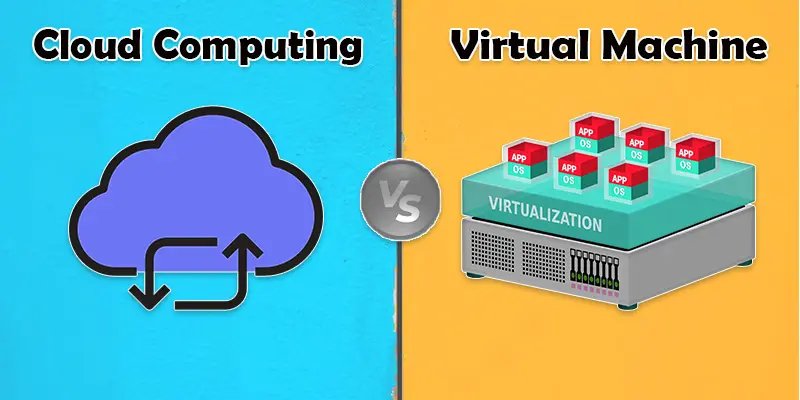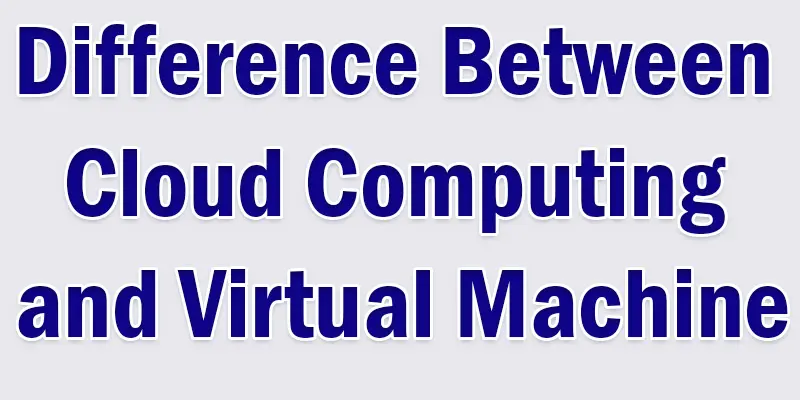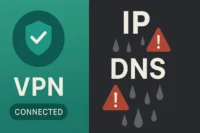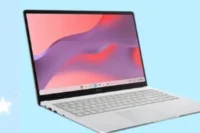Difference Between Cloud Computing and Virtual Machine Guide
Published: 26 May 2025
Cloud Computing vs Virtual Machine Performance Comparison
Many people still mix up cloud computing and virtual machines, but they’re not the same. Have you ever wondered why storing files online feels different from running a second operating system on your laptop? Choosing between Cloud services vs virtual machines can get tricky, especially when you’re trying to save money, keep things simple, or boost performance. Let’s break them down in a way that actually makes sense without the tech headache.
What is the Cloud Computing?
Cloud computing means using the internet to store files, run apps, and access tools instead of using your own computer. You don’t need to install anything, it’s all online. Services like Google Drive or Netflix use cloud computing.
What is a Virtual Machine (VM)?
Software that functions like a real computer within your computer is called a virtual machine (VM). It lets you run another operating system without changing your main one. For example, you can run Windows on a Mac using a VM.

Cloud Computing vs Virtual Machine for Beginners
How and where you use computer resources online in the cloud or on your own computer distinguishes cloud computing from virtual machines.
| Cloud Computing | Virtual Machine |
|---|---|
| Using services like storage, apps, or servers through the internet. | A software-based computer that runs inside a real one. |
| Using Google Drive to store files. | Running Windows on a Mac using VirtualBox. |
| Can be accessed from anywhere with the internet. | Usually runs on your local machine. |
| May need upfront costs for software and hardware. | I Need a strong computer to run well. |
| Quick and easy setup. | Takes time and technical steps. |
| Pay only for what you use (subscription or usage-based). | Depends on the provider’s security. |
| Yes, always. | No, works without the internet once set up. |
| Handled by service provider. | Users must manage and update. |
| Can grow or shrink easily as needed. | Harder to scale quickly. |
| The user controls the security setup. | User controls the security setup. |
| Depends on internet speed and provider. | Depends on your computer’s power. |
| Very mobile works on any device. | Not portable stays on your machine. |
| Limited customization. | Highly customizable environment. |
| Often automatic by the provider. | Must set up backups manually. |
| Shared with others on the same server. | Dedicated resources in your own system. |
| Not ideal for testing systems. | Great for testing different operating systems or apps. |
| Less control over backend systems. | Full control over the virtual environment. |
| Ready to use quickly. | Needs installation and setup time. |
| Great for regular users, teams, and small businesses. | Better for developers, testers, and IT professionals. |
| File storage, web hosting, online apps, email. | Testing software, running multiple OS, learning. |
| Google Cloud, Dropbox, Netflix, Microsoft 365. | VMware, VirtualBox, Parallels. |
| Lower personal energy use runs on data center power. | Uses your own system’s energy. |
How to Decide Between Cloud Computing and a Virtual Machine
Knowing when to use cloud computing or a virtual machine helps you pick the best tool for your needs.
When to Use Cloud Computing
- You want to access files and apps from anywhere with the internet.
- You need to save money by avoiding buying hardware.
- Your team works remotely or from different places.
- You want an easy and quick setup without technical skills.
- You need to handle large amounts of data that can grow or shrink.
- You prefer automatic backups and updates.
- You want to use popular online services like Google Drive or Netflix.
When to Use a Virtual Machine (VM)
- You want to run a different operating system on your computer.
- You need to test new software safely without risking your main system.
- You want to learn about different computer systems or software.
- Your work requires running multiple systems on one machine.
- You don’t always have internet access.
- You need full control over your environment and settings.
- You want to keep projects or software separated on the same device.

Conclusion About Cloud Computing vs Virtual Machine for Small Businesses
When comparing Cloud computing vs VM performance, it’s clear both have unique benefits. For most users looking for flexibility and easy scaling, cloud computing is the better choice. However, if you need full control over a specific environment, a virtual machine might suit you more. I recommend trying cloud computing first to enjoy its convenience and cost savings. Ready to make the switch? Explore cloud services today and see how they can boost your business.
FAQS
Choose a virtual machine that fits your needs. For beginners, try VMware or VirtualBox they are easy and free to use.
Cloud computing is better for easy access and scaling. Virtualization is good if you want to run multiple systems on one computer.
Cloud means using internet services to store and run apps. Virtualization means making many virtual computers on one real computer.
Microsoft’s cloud service is called Azure. It enables you to use Microsoft’s robust data centres to create, administer, and execute programs.

- Be Respectful
- Stay Relevant
- Stay Positive
- True Feedback
- Encourage Discussion
- Avoid Spamming
- No Fake News
- Don't Copy-Paste
- No Personal Attacks

- Be Respectful
- Stay Relevant
- Stay Positive
- True Feedback
- Encourage Discussion
- Avoid Spamming
- No Fake News
- Don't Copy-Paste
- No Personal Attacks





